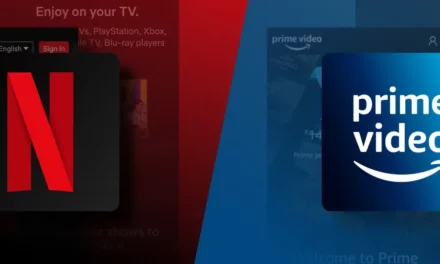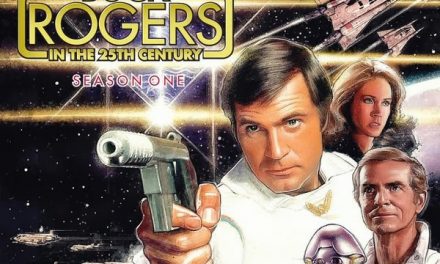I’ve never been a saint. I’m sure if anyone wanted to get me on my past, they very well could.
Bill Cosby, 1989 (Collins 141)
The unconscious mind can be both friend and foe. It sometimes is the source of strange and wondrous insights; it also can appear to be working against our own self-interest. Take for example the above seemingly self-deprecating aside offered by Bill Cosby in a largely innocuous celebrity piece from the one-time top-ten circulated Ladies’ Home Journal (i.e., 5,117,712 subscribers in 1989). The women’s interest and lifestyle magazine devoted its January 1989 issue to ‘What’s Hot in ’88.’ No one was hotter than Bill Cosby. His Q score—the industry metric that measures the likeability, popularity, and appeal of public personalities—then ‘outrated, outsold and outranked every other entertainer in history’ (Collins 141).
Cosby had already been a star for nearly two decades. Still, it’s hard to overestimate how popular Bill Cosby and The Cosby Show (NBC, 1984-1992) was in the program’s heyday. The Cosby Show was the #1 prime-time series in America for five straight seasons between 1985 and 1990, averaging over 63 million viewers per episode in the United States from 1986 to 1988. Tim Havens has also delineated how the program became the ‘biggest show in the world’ from 1985 through 1995 through global syndication even though it is a comedy program (371-391). Moreover, Cosby’s humorous ancillary knockoff Fatherhood (1986) set a new book publishing record at the time by selling 2.6 million copies in hardcover (Cosby).
My own parasocial relationship with Bill Cosby began when I was a young boy. My friends and I would listen to his comedy albums as adolescents. Soon afterwards we would see him on The Tonight Show and especially on I Spy (NBC, 1965-1968) where he won three straight Best Dramatic Actor Emmys between 1966 and 1968. Later when I read historian-critics such as Donald Bogle, I came to appreciate how much of a trailblazer Cosby really was. Bogle explained that Cosby was ‘the right actor in the right place at the right time’ and how Jackie Robinson was his ‘idol.’ As Cosby revealed years later: ‘He made it happen for blacks in baseball by using his talents, never his rage, to express his blackness. I felt that if in my ballpark I did my job as well as Robinson did his, I would also therefore be moving us down the road a piece’ (6, 115, 125).
Cosby no longer is near the peak of his popularity as an entertainer, but until this recent scandal, he was generally a beloved if somewhat passé icon in America and internationally. He had also become an outspoken and controversial proponent of self-reliance and accountability in the black community ever since delivering his so-called ‘pound cake’ speech in May 2004 as one of the awardees at an NAACP ceremony in Washington, D.C. to commemorate the 50th anniversary of the Brown v. Board of Education Supreme Court Decision. Journalist Ta-Nehishi Coates published a May 2008 Atlantic feature story on ‘the audacity of Bill Cosby’s black conservatism’ during a heated Democratic primary race between Barack Obama and Hilary Clinton. Coates observed how
Much pop psychology has been devoted to Cosby’s transformation into such a high-octane, high-profile activist. His nemesis [Michael Eric] Dyson says that Cosby, in his later years, is following in the dishonorable tradition of upper-class African Americans who denounce their less fortunate brethren. Others have suggested more-sinister motivations—that Cosby is covering for his own alleged transgressions. (In 2006, Cosby settled a civil lawsuit filed by a woman who claimed that he had sexually assaulted her; other women have come forward with similar allegations that have not gone to court.) But the depth of his commitment would seem to belie such suspicions, and in any case, they do not seem to have affected his hold on his audience: in the November Pew survey, 85 percent of all African American respondents considered him a ‘good influence’ on the black community, above Obama (76 percent) and second only to Oprah Winfrey (87 percent).
Fast forward to comedian Hannibal Burress who had recently begun calling out Cosby as a rapist who smugly talked down to black people in his stand-up routine. A minute forty-one second clip of his October 16th performance in Philadelphia was recorded on a cell phone, posted on YouTube, and quickly went viral. In an instant, Bill Cosby’s off-handed 25 year old prediction to Ladies’ Home Journal was on its way to being realized. Burress expressed frustration over Cosby’s ‘Teflon image.’ All he wanted, Burress said, was to ‘make it weird for you to watch Cosby Show reruns.’[1]
Mission accomplished. I initially focused on the story when I was contacted several weeks later by two reporters one after the other to comment on the recent spate of sexual assault allegations against Bill Cosby. My first reaction was more dismay and confusion than anything else. My mind also flashed back to one particular Cosby Show episode that I hadn’t seen in years, probably in decades as a rerun. When I was able to identify the exact program through an online search, it turned out to be ‘Cliff in Love’ (Episode 4 in Season 2), which was initially telecast on 17 October 1985. What I remembered most was the penultimate scene between Cliff (Bill Cosby) and Clair Huxtable (Phylicia Ayers-Allen) around the dinner table. Their oldest daughter, Sondra (Sabrina Le Beauf), had just broken up with her callow and unreliable boyfriend Elvin (Geoffrey Owens). Cosby’s character next encourages her to date someone she just met named Daryl (Joseph C. Phillips), while later coaching the young man on how to win his daughter.
Dr. Heathcliff ‘Cliff’ Huxtable: That’s it. Sondra and Daryl. That’s it. This is going to work.
Clair Hanks Huxtable: How do you know?
Cliff: Because the boy is intelligent. He’s in pre-med. He loves to cook. And he doesn’t mind a woman having a career.
Clair: What about Elvin?
Cliff: Elvin? You should hear his ideas about marriage.
Clair: Oh Cliff, He’s only twenty. He’ll change.
Cliff: No, No, No, Not Elvin. Elvin’s tough.
Clair: So were you.
Cliff: What?
Clair: You were an Elvin.
Cliff: I was not.
Clair: When you were 19, you used to strut around, point to me and say, ‘my woman!’
Cliff: Yeah, but I changed.
Clair: I know because I changed you.
Cliff: But Daryl doesn’t have to change. He’s got all the right attitudes.
Clair: Cliff, Daryl could be a bushwhacker.
Cliff: Bushwhacker?
Clair: Yes, a boy who says all the right things because he’s waiting in the bushes. Then he’ll jump out and say, ‘Where’s my dinner and my twelve babies?’
Cliff: Are you saying that that sweet, lovely boy is a liar?
Clair: I’m saying Daryl could be an Elvin in disguise.
Cliff: Huh?
Clair: There is an Elvin and Daryl in every man. You started out an Elvin and changed to a Daryl. Honey, if you could change, anybody can change.
Cliff: Yes, yes, okay. But what if Sondra marries Elvin and he doesn’t change?
Clair: It’s Sondra’s choice. We have to respect it.
Cliff: Okay. Is it alright if I root for who I want?
What made me think of this episode in the first place was recalling the word ‘bushwhacker.’ Weird indeed. The unconscious is a rich and amazing phenomenon—filled with slips of the tongue, subliminal perceptions, and unexpected connections—made all the more fertile by the interplay that happens between an artist and his or her audience. For viewers like me, the iconic nature of the Cosby persona resides in a widely shared dream pool that is long established and readily available. Artists also reveal the good, bad, and ugly about themselves in their work. Most of the time, it is the safest and most socially acceptable way for them to share with us their deepest, darkest secrets.
Illustration by P.J. Loughran (Huber)

In talking with the aforementioned reporters, we mostly discussed Bill Cosby’s long career and how his situation was markedly different from other fallen U.S. celebrities, such as Woody Allen, Lance Armstrong, Mel Gibson, Charlie Sheen, and Tiger Woods, among others. For instance, the growing number of revelations in Cosby’s case didn’t just undercut his public image, they stood diametrically opposed to the traditional family-oriented values he espoused. Cosby was being fully unmasked by his old school and unreconstructed vices and alleged crimes as well as his virtues. Like a demigod who has gone against the natural order of things, his fall from Olympus is proving to be precipitous and irrevocable.
What started out as a trickle of charges quickly turned into a torrent. By November 21, Slate listed 27 women along with capsule descriptions of their accusations (Ioannou, Mathis-Lilley, and Hannon). A day later, the Washington Post provided an even more thorough and substantive overview of the allegations (Roig-Franzia, Hingham, and Flaherty). The sheer number of victims is staggering; the similarities in their stories are undeniable.
Team Cosby—his phalanx of communication advisors and lawyers—were no longer able to control the agenda as they had in the past (Manley and Bowley). Their response to the viral distribution of the Burress video including his charge that their client had raped thirteen women was to tweet ‘Go ahead. Meme Me!’ along with a dozen pre-selected images under the hashtag #CosbyMeme on November 10 (Hartmann), hoping for some positive reinforcement. Instead, the response was anything but.
Left: Original Cosby ‘Go ahead. Meme Me’ Invitation; Right: A Typical Response

Team Cosby was now in full retreat. In rapid succession, Netflix postponed the release of a stand-up comedy special by Cosby commemorating his 77th birthday; cable network TV Land stopped a planned marathon showing of The Cosby Show during the long Thanksgiving holiday weekend and ‘quietly stopped showing repeats’ of the program altogether; several personal appearances were next canceled including guest spots on Late Night with David Letterman and Queen Latifah’s daytime talk show; and most tellingly, NBC ceased development of a new sitcom featuring the comedian despite having to pay ‘a penalty fee of more than $1 million’ if the network failed to follow through (Carter, Bowley, and Manly; Flint and Vranica). In addition, the Los Angeles Police Department was pressed into an investigation of a 1974 incident at the Playboy Mansion involving an accuser who was only fifteen at the time (Mather and Winton).
Why these revelations appear to be surfacing wholesale in 2014 after so many years under the radar of public scrutiny is due to a constellation of factors including Bill Cosby’s heightened profile from taking on a series of new projects, the increased usage of social media, raised consciousness on sexual violence towards women, and a new biography, Cosby: His Life and Times, written by former Newsweek editor Mark Whitaker. Cosby was published in September 2014 and the author has been challenged ever since on why he didn’t adequately address this darkest of chapters in Cosby’s life (‘Mark Whitaker on Cosby: His Life and Times’).
With the passage of time, the lack of forensic evidence, and the scarcity of legal recourse, it’s unclear whether Cosby’s alleged crimes will be tried in anything other than the court of public opinion. As of now, Bill Cosby has refrained from commenting on the accusations, but his wife of more than fifty years, Camille, released a strong statement of support on Monday 15 December 2014 that affirms, ‘He is the man you thought you know.’[2] Evin, his youngest of four daughters, has also issued words of reassurance. Likewise, senior executives from NBC and the Carsey-Werner production company during the run of The Cosby Show were ‘stunned’ by allegations that were ‘beyond our knowledge and comprehension,’ while one retired below-the-line NBC employee spoke with the press, claiming that he assisted Cosby in conducting several assignations (Masters).
Furthermore, several journalists have commented on the conspiracy of silence that exists between Hollywood’s power brokers and the celebrity press. For example, New York Times columnist and media critic, David Carr, expressed regret over doing a lucrative 2011 question-and-answer puff piece on Cosby for United Airlines’ in-flight magazine, Hemispheres, even though he was fully aware of the existing allegations against the comedian (Carr). Similarly, Ta-Nehisi Coates published a 19 November 2014 rejoinder to his 2008 Atlantic article on the magazine’s website arguing that
A defense of Cosby requires that one believe that several women have decided to publicly accuse one of the most powerful men in recent Hollywood history of a crime they have no hope of seeing prosecuted, and for which they are seeking no damages. The alternative is to see one of the most celebrated public fathers of our time, and one of the great public scourges of black morality, revealed as a serial rapist.
Coates concludes that throughout 2008 as well as today his research leads him to believe that ‘Bill Cosby was a rapist.’
Needless to say, this story is far from over. All human beings have the inherent capacity to inspire or disappoint, but this case takes us deeply and uncomfortably into the realm of illegality and soul-crushing immorality. Even at a distance, this new version of Cosby is difficult, and for some impossible, to square with the iconic persona that has been beloved by audiences all around the world for decades. It doesn’t fit the larger-than-life feel-good image of Bill Cosby that’s resided in the cultural firmament for years.
There may have been clues that pointed towards a darker reality, but the bottom line is all of us at one time or another choose to ignore something of personal or public significance that we could know and should know simply because it is easier to deny what is at first shocking or troubling in some way. Once again we’re reminded by Bill Cosby’s fall from grace that the full reality of him as a person is far more complex, cruel, and disillusioning than the appeal and resonance of his artistic persona. That’s a lesson worth acknowledging, facing head on, and remembering.
Gary R. Edgerton is Professor and Dean of the College of Communication at Butler University. He has published twelve books and more than eighty essays on a variety of television, film and culture topics in a wide assortment of books, scholarly journals, and encyclopedias. He also coedits the Journal of Popular Film and Television.
[1] Hannibal Burress’ full commentary: ‘Thirteen? And it’s even worse because Bill Cosby has the fucking smuggest old black man public persona that I hate. Pull your pants up, black people. I was on TV in the ‘80s. I can talk down to you because I had a successful sitcom. Yeah, but you raped women, Bill Cosby. So, brings you down a couple notches. I don’t curse on stage. Well, yeah, you’re a rapist, so, I’ll take you sayin’ lots of motherfuckers on Bill Cosby: Himself if you weren’t a rapist. I don’t know what I’m doing by tellin’ you. I guess I want to just at least make it weird for you to watch Cosby Show reruns. Dude’s image, for the most part, a fucking public Teflon image. I’ve done this bit on stage, and people don’t believe. People think I’m making it up. I’m like, “Bill Cosby has a lot of rape allegations,” and they go, “no, you do!” They call me Captain Kick-em-out. That shit is upsetting. If you didn’t know about it, trust me. You leave here and Google “Bill Cosby rape.” It’s not funny. That shit has more results than “Hannibal Burress.”’
[2] Camille Cosby’s full statement released to the press on Monday 15 December 2014: I met my husband, Bill Cosby, in 1963, and we were married in 1964. The man I met, and fell in love with, and whom I continue to love, is the man you all knew through his work. He is a kind man, a generous man, a funny man, and a wonderful husband, father and friend. He is the man you thought you knew.
A different man has been portrayed in the media over the last two months. It is the portrait of a man I do not know. It is also a portrait painted by individuals and organizations whom many in the media have given a pass. There appears to be no vetting of my husband’s accusers before stories are published or aired. An accusation is published, and immediately goes viral.
We all followed the story of the article in the Rolling Stone concerning allegations of rape at the University of Virginia. The story was heart-breaking, but ultimately appears to be proved to be untrue. Many in the media were quick to link that story to stories about my husband—until that story unwound.
None of us will ever want to be in the position of attacking a victim. But the question should be asked—who is the victim?





